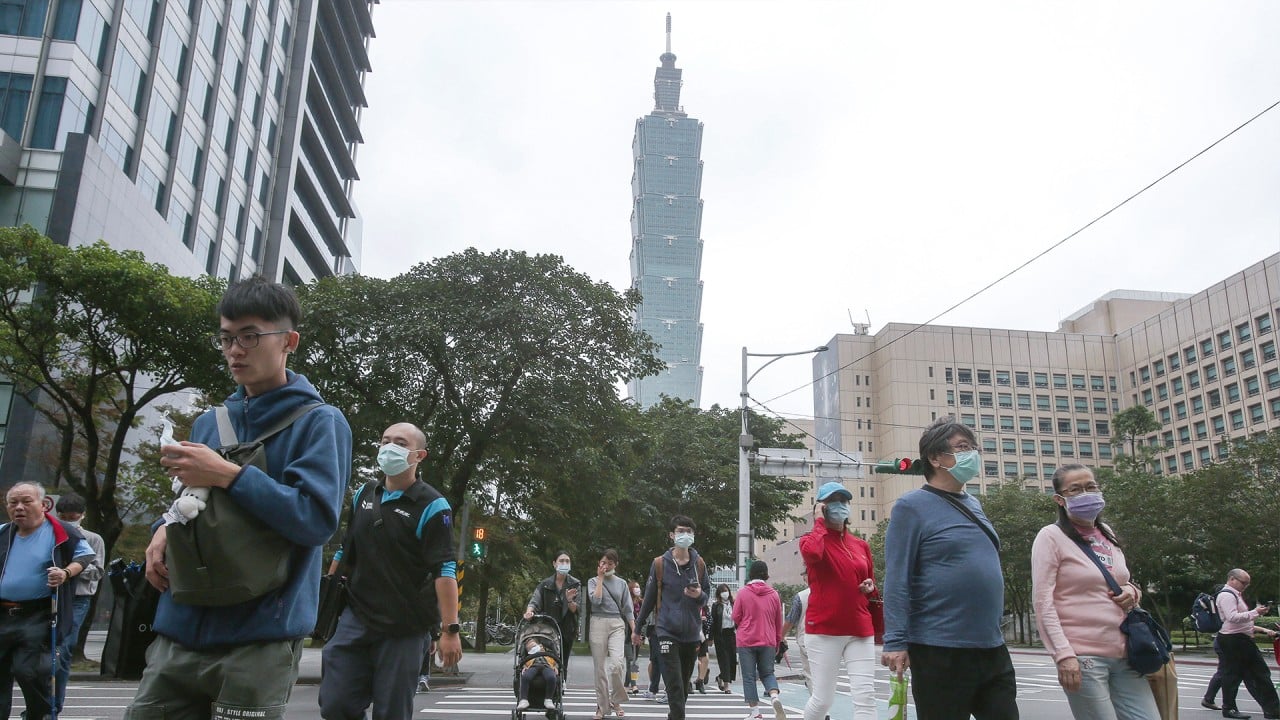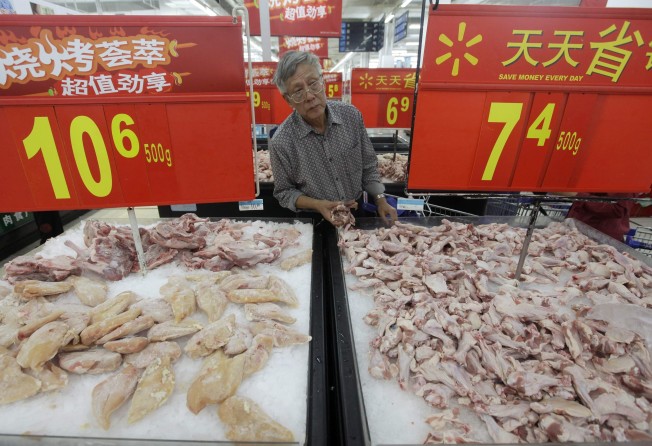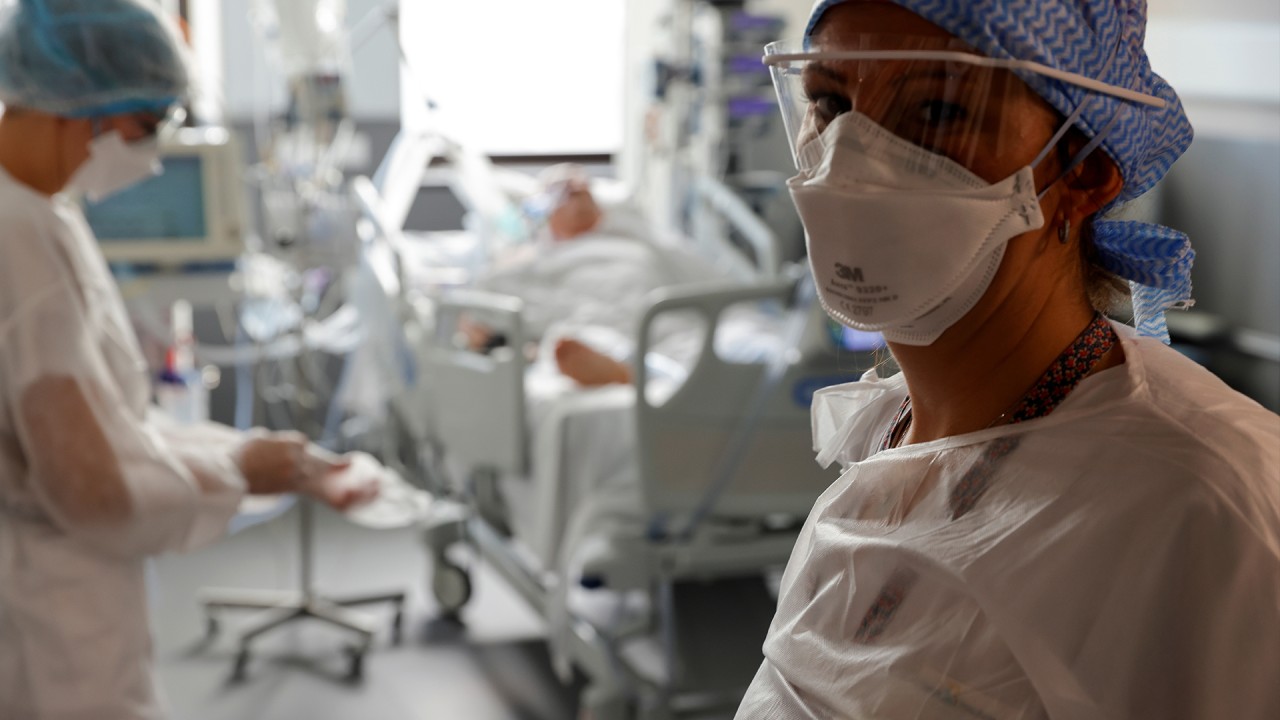
03:42
Coronavirus: How did Taiwan keep local Covid-19 transmissions to zero for over 200 days?

China is zeroing in on potential Covid-19 transmission from frozen food after cases were linked to contaminated packaging in recent months, but the World Health Organization and public health experts maintain that the risk is low.
According to the global health body’s guidance to food companies, the virus can survive on surfaces for various lengths of time depending on the temperature and humidity level, and for a longer time in cold storage, but “it is highly unlikely that people can contract Covid-19 from food or food packaging”.
A WHO spokesman on Friday said it was “aware of previous reports from countries including China, Germany, the Netherlands and New Zealand where virus was found on packaging of frozen food through PCR testing”, a method used to detect the coronavirus.
“[However] so far, we have not seen evidence of people getting Covid-19 from consuming food: Covid-19 is not a food-borne illness,” the spokesman said.
The comments came as authorities in Wuhan, the central Chinese city where the coronavirus was first identified, on Friday reported a new case of contaminated cold-chain products. They said three samples from the outer packaging of frozen Brazilian beef had tested positive, according to Reuters. The meat, which entered the country on August 7 and reached the city 10 days later, had been kept in a cold storage facility.

03:42
Coronavirus: How did Taiwan keep local Covid-19 transmissions to zero for over 200 days?
According to Michael Baker, a public health expert at the University of Otago in New Zealand, environment-to-human transmission is hard to identify and is seen as far less of a risk than the spread of respiratory droplets and aerosols between people.
He said a surface could be contaminated with respiratory droplets from an infected person, and the virus could then be transferred by someone touching that surface. But the risk of becoming infected by touching food packaging was extremely low, and “not worth worrying about”.
The WHO spokesman also noted that the number of food imports which have tested positive for Covid-19 was relatively low, citing tests conducted by Chinese authorities.
Chinese customs data released on Wednesday showed just 13 out of 873,475 imported frozen food samples tested were found to be contaminated.
Despite the low risk, the Chinese government on Monday said all overseas shipments of cold-chain products would be disinfected – their packaging and the vehicles used to transport them – as part of efforts to prevent the spread of the coronavirus.
That goes against WHO advice to consumers in August that it was not necessary to disinfect food packaging, though handwashing was recommended after handling food packaging and before eating. It also advised food businesses to use disposable containers and packaging, and to ensure appropriate hygiene and sanitation when reusable containers were used.
In addition to the disinfection measures, China has imposed one-week import bans on companies from Brazil, Ecuador, Indonesia and Russia after some of their cold-chain products tested positive.

03:39
Coronavirus: Europe’s second wave puts hospitals under pressure again as cases soar
China has largely brought local transmission of Covid-19 under control and has moved fast to respond to recent outbreaks with partial lockdowns and citywide screening.
Another case involving a cold storage worker was reported in the northern port city of Tianjin earlier this month. The 38-year-old man had handled frozen pork knuckles imported from Germany and had not had any contact with coronavirus patients or any travel history outside China. He tested positive on November 7 during screening after the virus was found on packaging of the German product, and officials on Monday said he had been infected with a strain that could be traced back to Europe.
Similar cases have been reported in Beijing and Qingdao. Beijing authorities linked a cluster in June to a chopping board that had been used for imported salmon, while cases among port workers in Qingdao last month were linked to the packaging of imported frozen cod.
Baker said port workers were not considered to be a high-risk group in countries where there was widespread transmission of the coronavirus since most cases were spread by respiratory droplets and aerosols from close contacts.
“However, in [places] where Covid-19 has been eliminated like China, Taiwan and New Zealand, staff who work at borders, such as port workers, are at elevated risk compared with the general population,” he said.